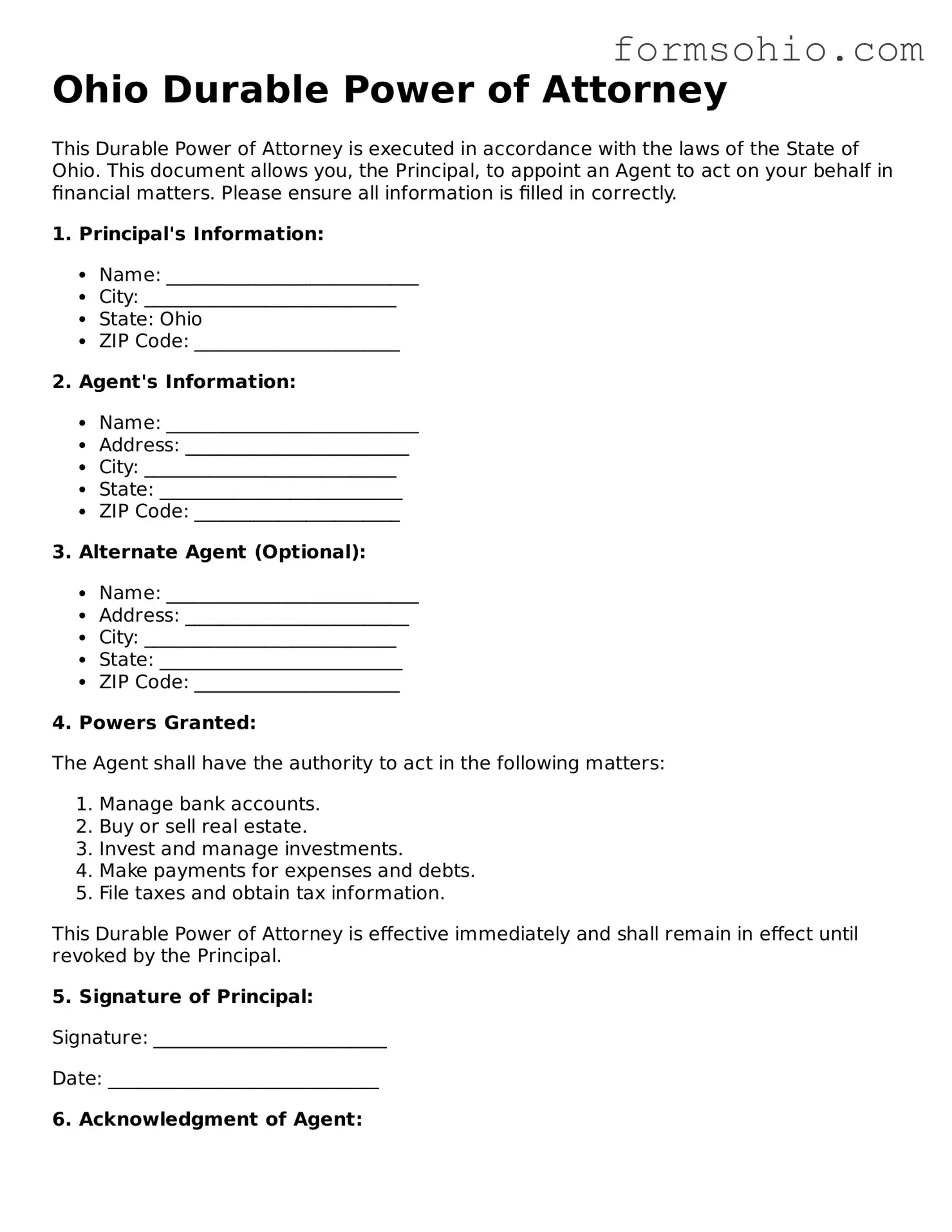Printable Durable Power of Attorney Template for the State of Ohio
A Durable Power of Attorney in Ohio is a legal document that allows an individual to appoint someone else to make decisions on their behalf if they become unable to do so. This form remains effective even if the person who created it becomes incapacitated. Understanding this document is crucial for ensuring that your wishes are respected during difficult times.
Get This Document Online

Printable Durable Power of Attorney Template for the State of Ohio
Get This Document Online
Complete this form efficiently and quickly
Complete Durable Power of Attorney online without printing hassles.
Get This Document Online
or
Free PDF File
